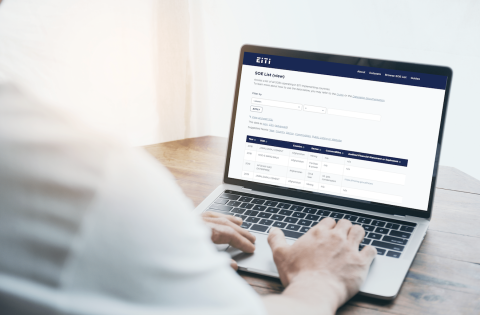
Suriname achieves fairly low score in EITI implementation
Outcome of the Validation of Suriname
The EITI Board concluded that Suriname has achieved a fairly low overall score (58.5 points) in EITI implementation. The government has shown a renewed commitment to EITI implementation and Suriname EITI has contributed to discussions on critical national issues, such as the development of a new mining law. However, further efforts are needed to enhance stakeholder engagement and broaden disclosures, for example on beneficial ownership, property and contractual rights, and obligations of extractive companies and projects.
“Suriname’s renewed commitment to the EITI is commendable,” EITI Board Chair Helen Clark said. “Suriname EITI plays a vital role in fostering public debate and decision-making on natural resource governance. However, there is an opportunity for Suriname EITI to broaden its stakeholder engagement and extend disclosure practices to key areas such as exploration and production licenses, mineral royalty payments, and expenditures made by the national oil company, Staatsolie, on behalf of the Government.”
The extractive sector accounted for 25% of Suriname’s total government revenues, 5.6% of its GDP and nearly 14% of national exports in 2020, primarily driven by mining activities. Demand for the country’s minerals, such as bauxite, will likely ramp up due to their crucial role in energy transition technologies. Suriname is also witnessing the emergence of a growing oil and gas sector, attracting multinational investments through its state-owned enterprise Staatsolie.
Bolstering institutional capacity
Suriname has taken significant steps to strengthen its environmental governance framework, notably with the establishment of the National Environmental Authority (NMA) through the Environmental Framework Act enacted in May 2020. This legislation enhances existing practices of publishing comprehensive Environmental Impact Assessments on the National Institute for Environment and Development (NIMOS) website. By consolidating the NIMOS and NMA, the Act introduces domestic legal provisions and administrative rules aimed at addressing public and civil society concerns regarding environmental rehabilitation and degradation.
To further strengthen inter-agency collaboration and oversight, the multi-stakeholder group could expand its membership to include other government entities such as the Central Bank, the Bureau of Statistics and the mining state-owned enterprise Grassalco. It could also combine its efforts with Suriname’s planned Minerals Institute, which is intended to streamline the mineral licensing process, especially as new mining projects are developed in response to increasing demand for energy transition minerals. Moreover, participation from gold buying houses and the Central Bank could support discussions on royalty payments associated with gold production.
Extending comprehensive disclosures
Staatsolie and the Staatsolie Hydrocarbon Institute (SHI) are committed to EITI implementation. Staatsolie has published its model production sharing contract (PSC) which governs its agreements with international oil companies, paving the way for full contract disclosure in the oil and gas sector. It also discloses its social and environmental expenditures. However, further efforts are needed to ensure that all contracts are disclosed in full, including agreements signed by Staatsolie to undertake expenditures on behalf of the government that are not reflected in the national budget. While multinational mining companies disclose their mining agreements and obligations with communities, clarification is needed regarding mining rights for artisanal, small-scale and medium-scale operations.
Efforts to establish a publicly accessible register of mining licenses have slowed since the previous Validation. Prioritising this initiative will remain crucial to clarify mining rights and support reforms aimed at mitigating illicit mining. Establishing a public beneficial ownership register will also be vital in this effort, as it can serve as a vital tool to identify conflicts of interest and enhance corporate accountability, thereby strengthening transparency and governance in the extractive sector.
Suriname is currently suspended for failing to publish its EITI Report. The suspension will be automatically lifted if Suriname publishes its EITI Report by 30 June 2024.
Contenu connexe



Les tendances en matière de transparence : bilan des divulgations sur la propriété effective dans les pays mettant en œuvre l’ITIE


